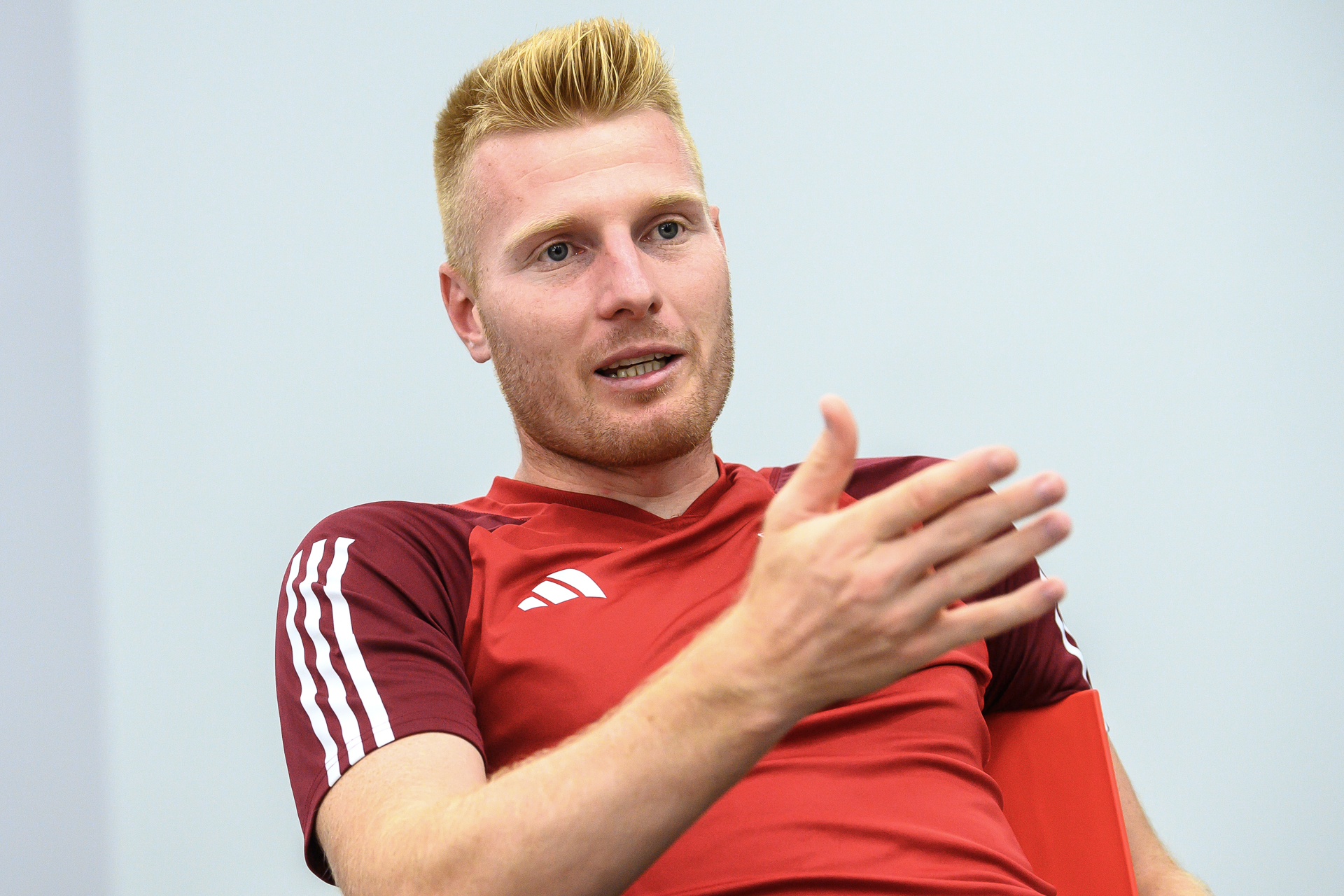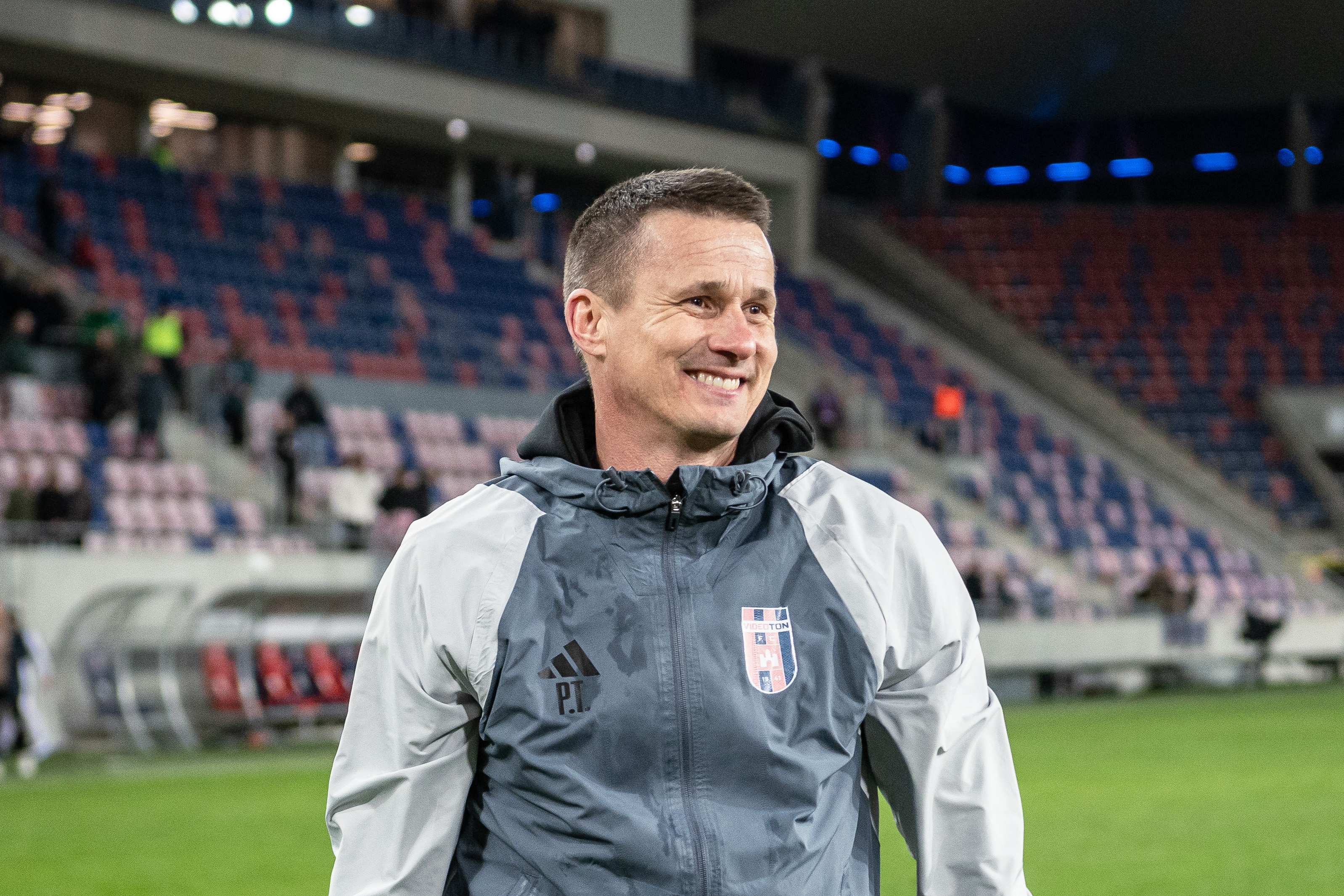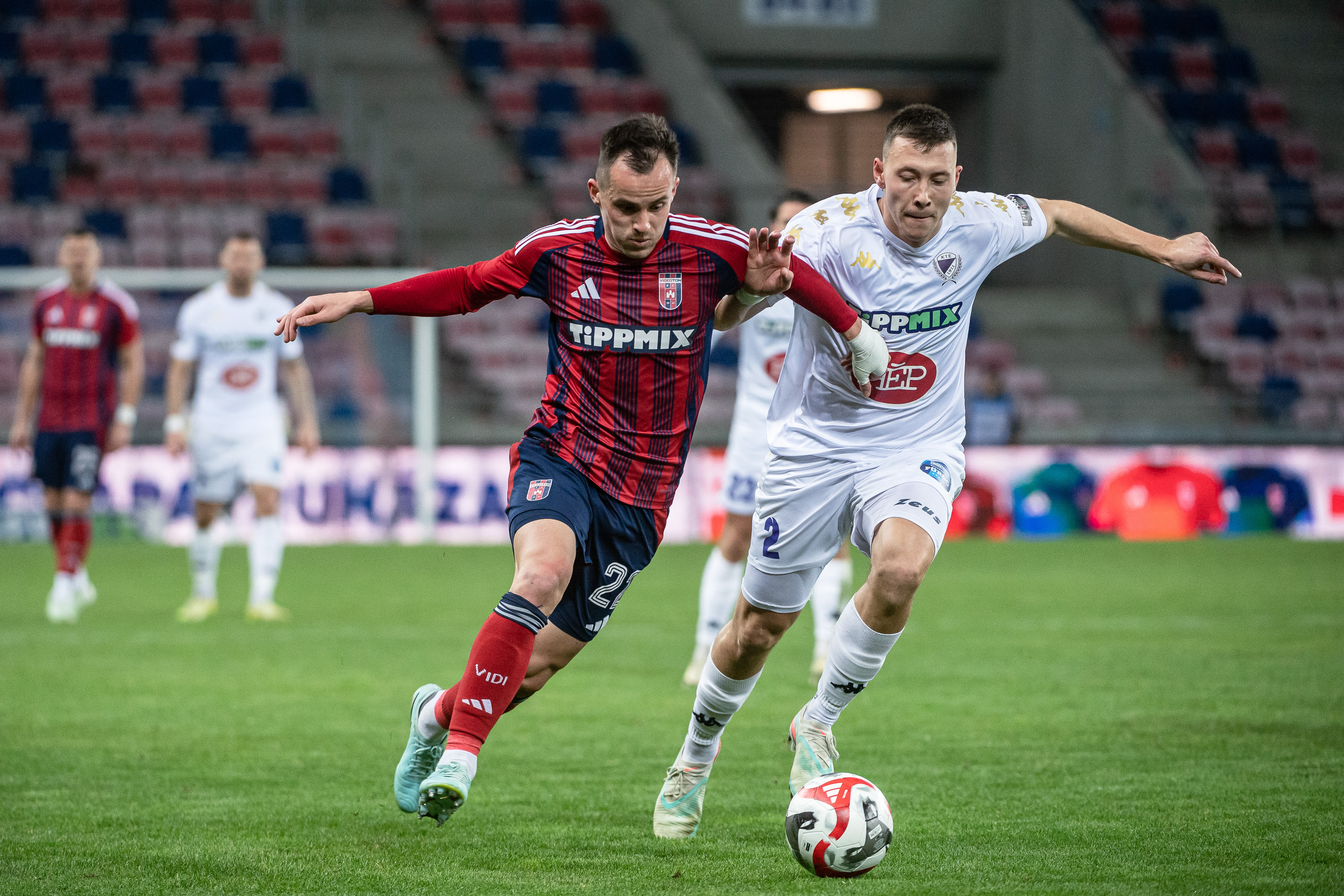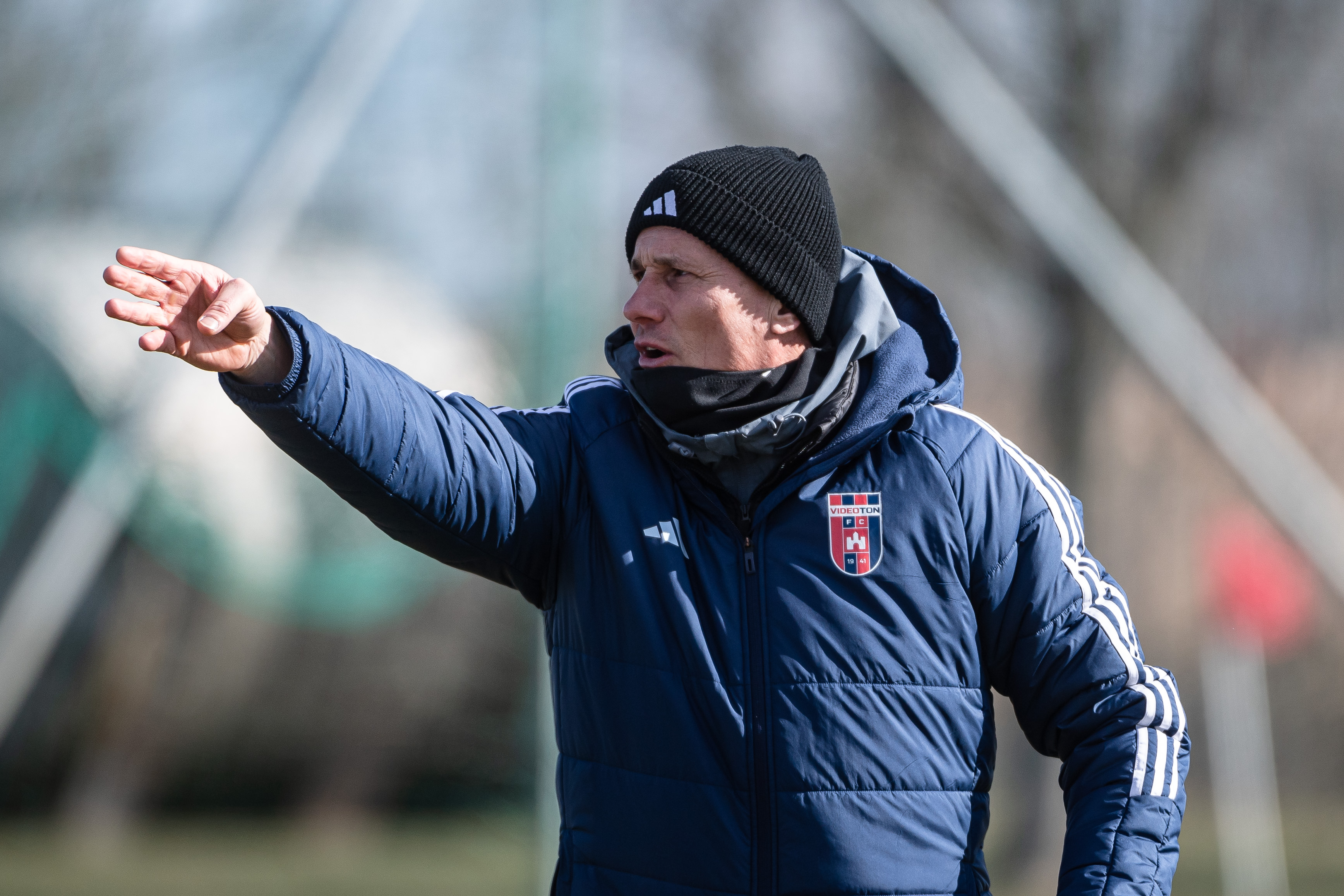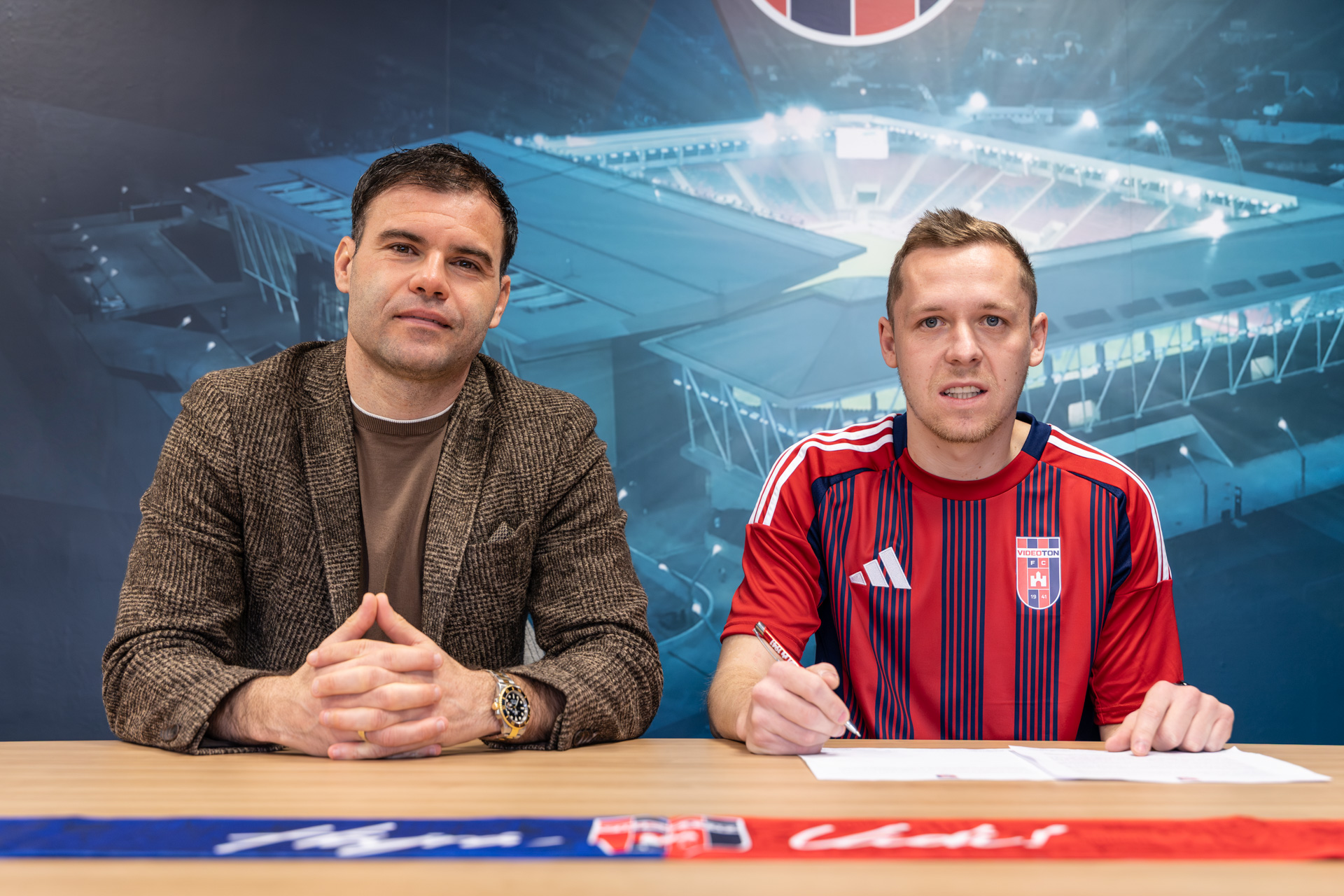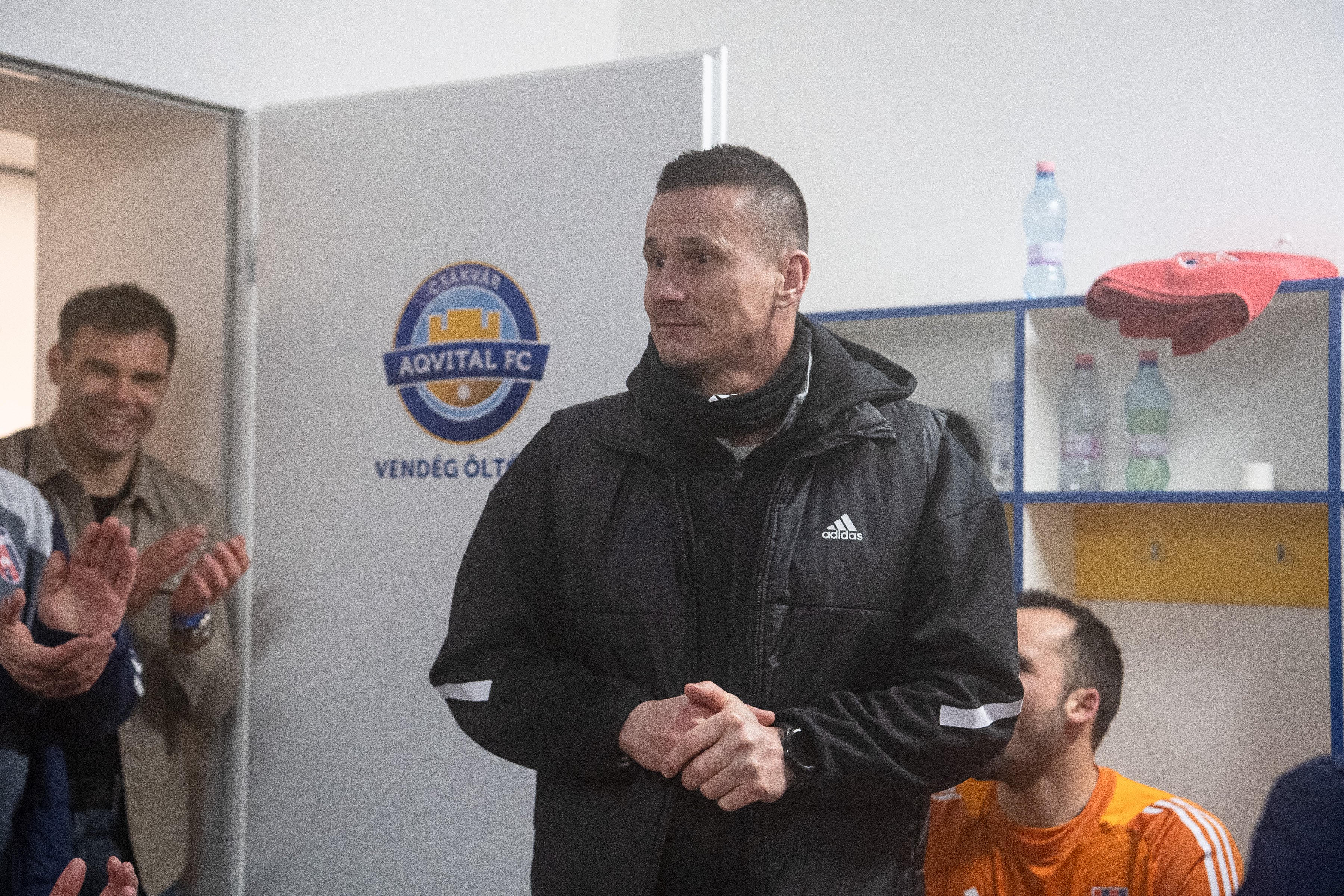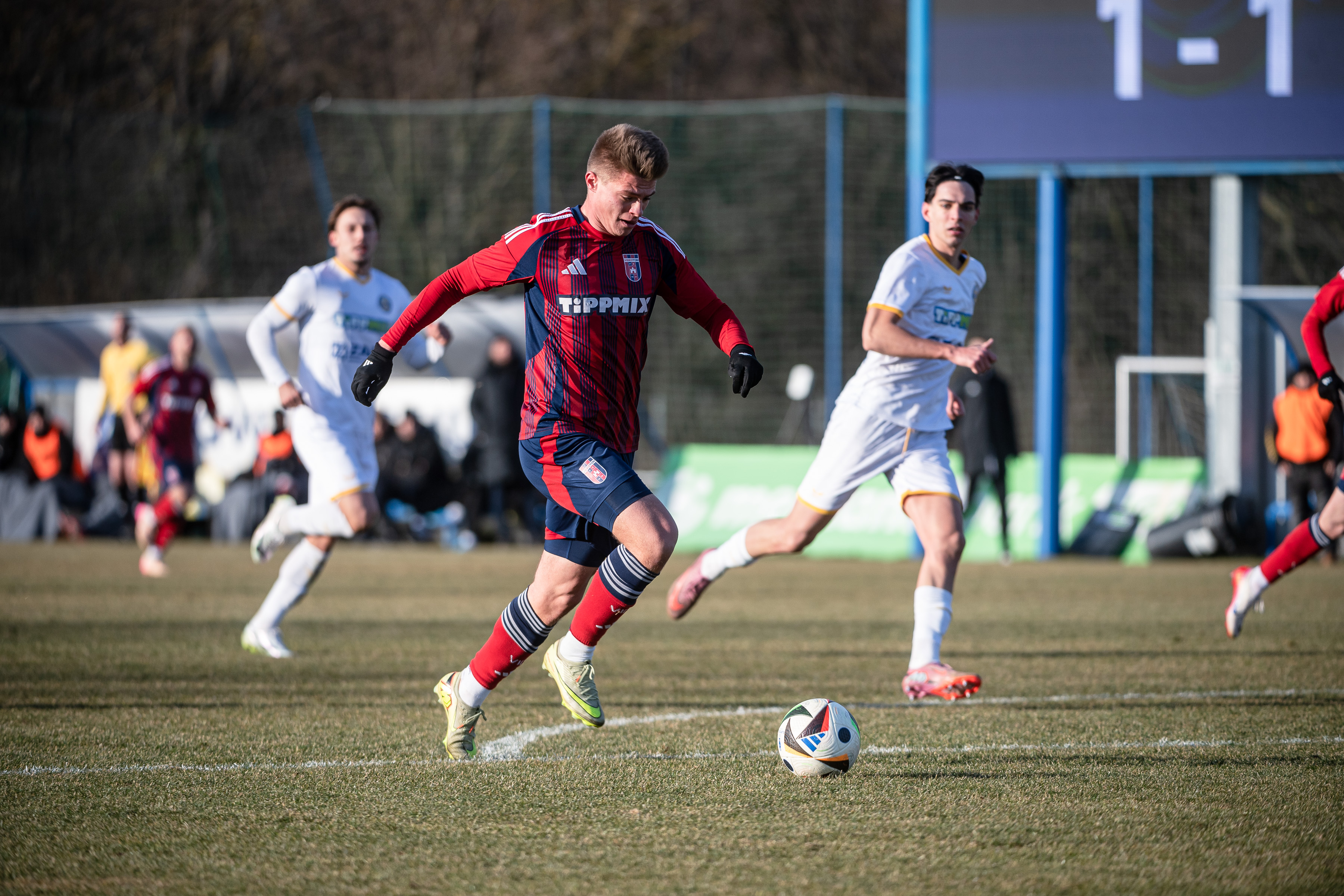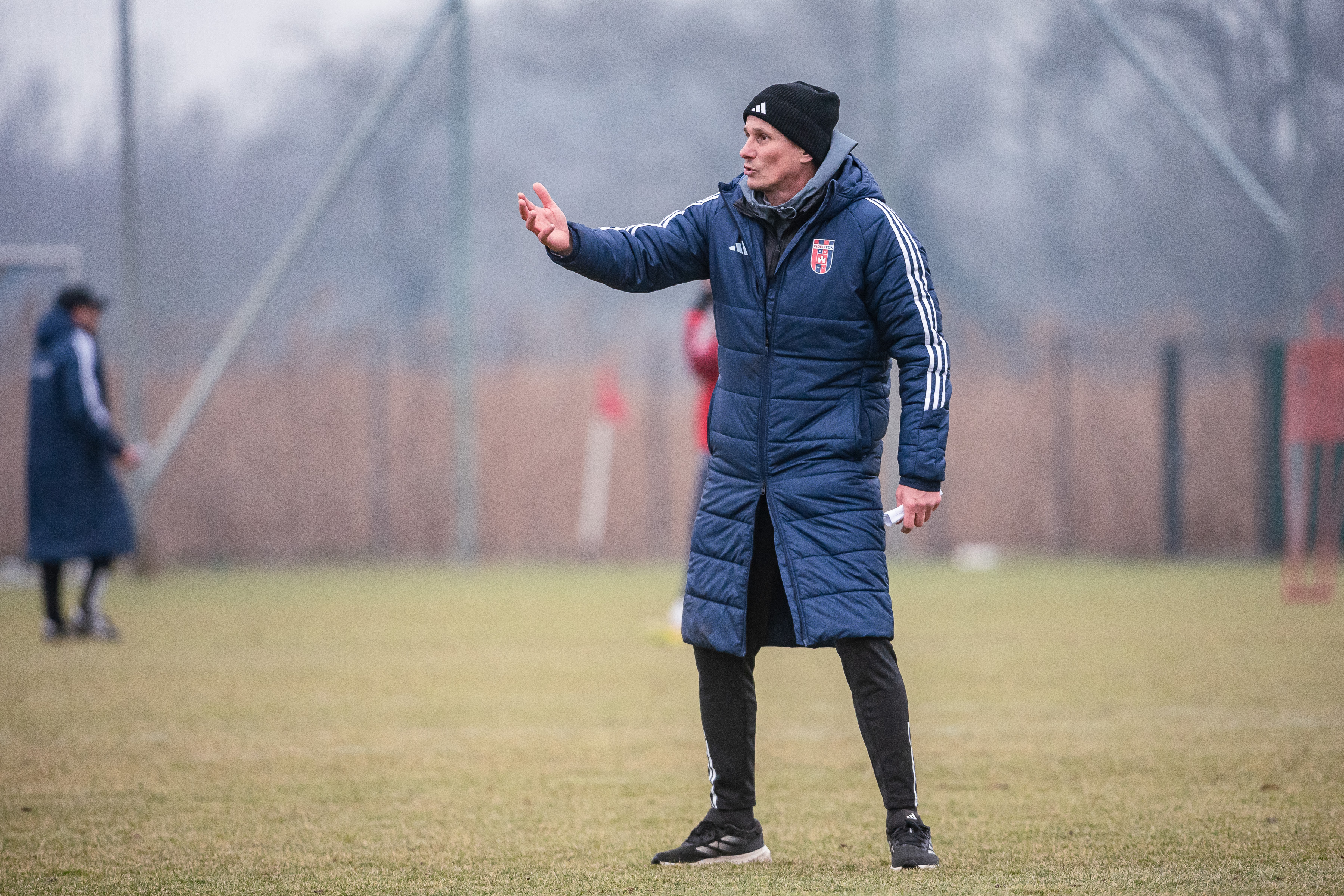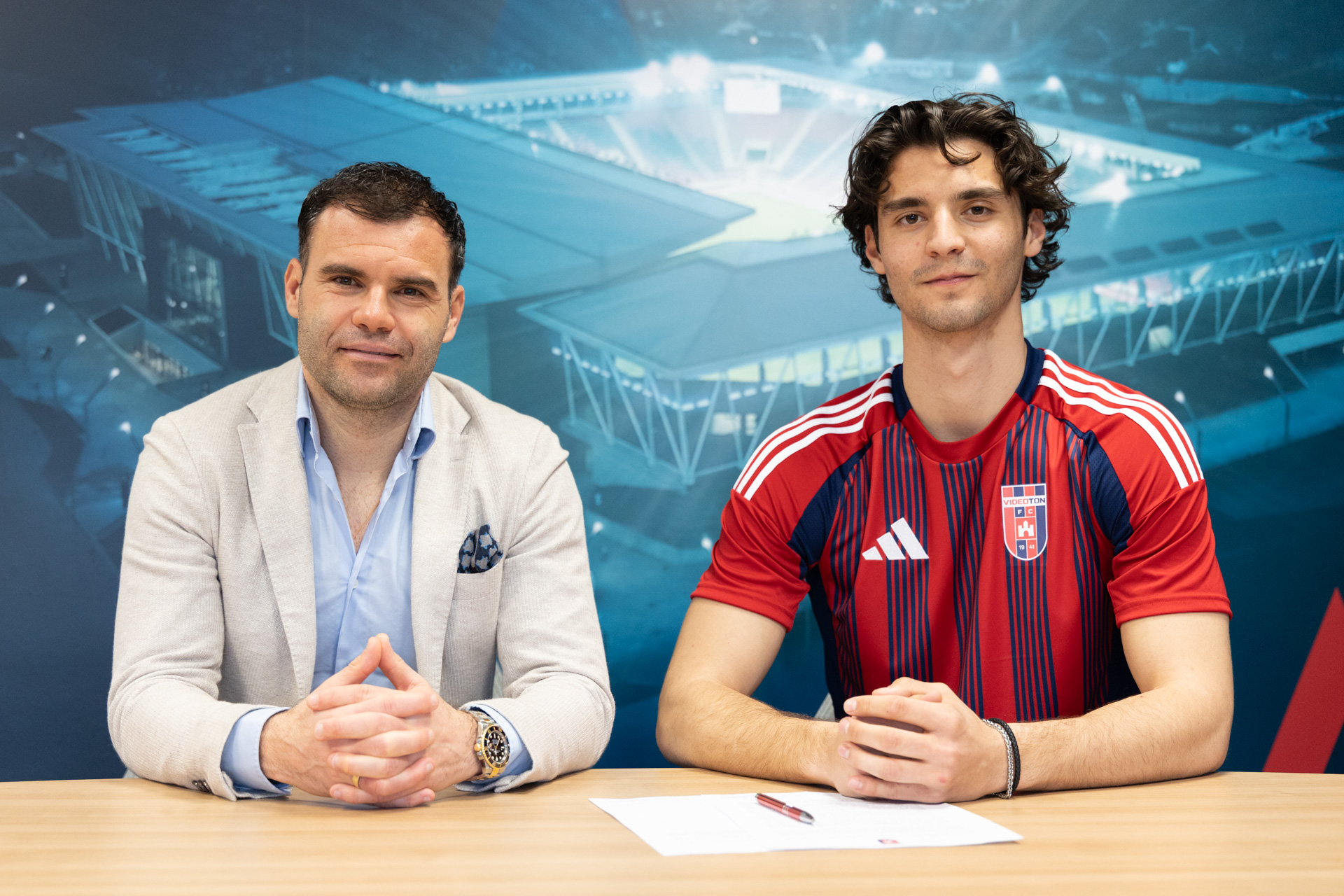We also talked to our national team midfielder about his childhood, ETO, Leipzig, DAC and the national team
- Why did you decide to play football as a child?
In fact, my love for the ball was instinctive, because from the moment I started walking, the ball was my constant companion - I woke up with it, I went to bed with it, and I played with it all day long. I must have been nine or ten years old when I joined ETO's academy, where I went through the age-group teams..
- You have a twin brother, did he also like playing football as a kid?
Yes, I have a twin brother and a sister, and although my twin brother also liked football, he only played it as a hobby, while my sister played for ETO's women's team for many years. As children, the three of us spent a lot of time on the football pitch.
- You made your debut in the NB1 at a very young age. How do you remember that game in the first division?
It was a great feeling because, as you said, I made my debut at a very young age and at that time it was not so common to see 17-18 year olds playing in the first division. Nowadays, you don't get so upset when you hear that an 18-year-old is making his debut in the first division, because the MLSZ also encourages clubs to field as many young players as possible, but ten years ago that was not the case. I played against Honvéd in my first NB I league game and scored my first NB I goal in my next game against Eger (interestingly, Bence Szabó, our club's current deputy sporting director, played for Eger in that game - editor's note). Anyway, it was a bit of a lucky break for me to get close to the NB I team, as I wasn't training there at the time, but in the youth team. Our training session was next to the NB I team's pitch and Attila Pintér needed an extra player because the game was 11 against 11, but there were only 21 adults and my coach sent me over to train with the NB I team. Fortunately, the game went well and after that Attila Pintér didn't let me back, he took me on and I stayed in the NB I squad.
- Was it hard to combine studying with football? I was in the lucky position that the ETO academy had a separate school and the training sessions were planned in such a way that I could attend the classes. The school director and the teachers helped me a lot, it was no problem if I was absent for matches or training, they always let me go everywhere and I tried never to abuse it. I got a lot of support from my teachers to become an adult, it was a fantastic time in my life. - Who were you favorite footballers or role models when you were young? Péter Bajzát was one of them, I liked the way he played very much and I was very impressed by the little bit of shrewdness he had. I looked up to Messi and Iniesta as role models, but I also looked up to Balázs Dzsudzsák when he played in Holland. - In 2014 you moved to Leipzig, but you had several options abroad. Why did you choose Germany? It's true, I was lucky to have several teams to choose from, I had inquiries from the Netherlands and Greece. All of them were very tempting, but overall, Leipzig seemed the best choice from all points of view. It should be noted that Leipzig was a very different Leipzig than the one we have today, as it had just been promoted to the second division and was in the process of being rebuilt. It was not easy to adapt to that team, because I came from a football culture where the emphasis was on playful football, whereas the Leipzig of that time played a battling kind of football, which took some time to adapt to. Overall, though, I gained a lot of useful experience in Leipzig, as it showed me what I still need to improve on. - If you had to choose today between German, Dutch and Greek offers, would Leipzig still be the winner? It's a very good question and I haven't really thought about it. I've always been a fan of the short passing game and in Bundesliga 2 there was a lot more emphasis on duels, which was not an easy task with my 70 kilos at the time (laughs). Nowadays, I might have made a different decision, but that doesn't mean I regret my move to Leipzig, because I really learned a lot there. I learned how to attack and I improved a lot in defence and physically.. - You came to Germany at a young age, where not only was the football different from what you were used to in Győr, but you had to cope with an unfamiliar environment. Was there anyone to help you in your daily life or were you completely on your own? Tamás Bódog was a member of the coaching staff at Leipzig at the time, and he helped me a lot on and off the pitch. To this day we are still very close and keep in touch. At the same time, it was important for me to learn German, so I took German lessons three times a week. Unfortunately, when I went out, I didn't speak German, even though we were taught German at school at home. I was often told that it was important to know the language, but as a child I was not very diligent in my language learning - something I regret very much in retrospect. I did manage to master German at a basic level in three or four months, and after that I was able to communicate much more fluently with my team-mates. - Speaking of team-mates, in Leipzig, for example, you had Joshua Kimmich as your position-rival, who later won everything at a club that can be won as a Bayern Munich player - league title, cup, Super Cup, Champions League, UEFA Super Cup, FIFA Club World Cup. Even during his time in Leipzig, he was already a very talented footballer, but his game was not nearly as clear-cut and he did not stand out from the field as he did later as a Bayern Munich player. We were usually substitutes for each other, but there were also matches where we were both on the pitch at the same time. Then Bayern Munich were picking the young players they thought were the most talented, and that's how Kimmich, who went on to become one of the best midfielders in the world, ended up there. When I played for Brøndby in Denmark, I had a great teammate, Teemu Pukki was a brilliant striker, he could score from any position, I loved playing with him. - How did you become a DAC player? I was still playing in Denmark when Marco Rossi called me and told me that he was going to be the head coach of DAC and that he knew me from the NB I and had big plans for Dunaszerdahely. He outlined his ideas and everything was very sympathetic to me. I came to Dunaszerdahely on loan for the first time and it was one of the best decisions of my career to join the club. I played regularly, played well, scored goals, provided assists and improved. The original plan was to build myself up during the one-year loan and then go back to Leipzig. However, I was welcomed in Dunaszerdahely, the fans and the atmosphere completely captivated me, so I decided to play for DAC for good. Over the years, I have been part of some great successes, finishing third twice and second twice in the league between 2018-2021. My only regret is that we didn't win the championship, but I'm very confident that DAC will do it again in the future, because the club and the fans deserve to celebrate a championship title and I will be cheering for them. - You made your debut for the senior national team in 2014, how do you remember your first invitation almost ten years later? In December 2013, Attila Pintér was appointed head of the national team, and at the beginning of the following year he invited me to the first training camp, and in January we had a few days of training together. A few months later I was able to make my debut for the national team against Denmark. It was a huge experience and a great honour for me, as I was still only 19 years old at the time. I believe that a footballer can never ask for more than to represent his nation on the pitch.. - You were disappointed not to be in Bernd Storck's traveling squad for the 2016 Euros? At the beginning of the year I went on loan to Frankfurt precisely to play continuously, but unfortunately things didn't work out as I had planned, at the end of the season we were relegated from Bundesliga 2 and I didn't play as well as I expected, so it wasn't a surprise that I didn't make the squad for the European Championship. I didn't feel disappointed at the time, it motivated me even more to become an even better player and I set myself the clear goal of being part of the national team for the next, partly home-grown, European Championship.. - You could say that you were a victim of the COVID epidemic, because if it hadn't been for the pandemic, the next European Championship would have been held in the summer of 2020, and you would have been there. However, the epidemic caused the tournament to be postponed for a year, and you were unable to play for the national team in the summer of 2021, having suffered a serious injury against Andorra in March 2021. Indeed, I would have definitely been at the 2020 European Championship, as I was having the best time of my career, I was voted the best player in the Slovak league, I scored a lot of goals and I was a regular starter for the national team. Then in Andorra all my dreams were shattered when I jumped up for a ball and landed badly on the ground, injuring both my cruciate and external cruciate ligaments. I wouldn't wish the feeling I had after my injury on anyone. At 26, I was in the form of my life, I could have played in the European Championships at home... I can't deny that I cried a lot at home because I couldn't go to the European Championships, it was one of the hardest times of my life. My family, my brothers and sisters, my wife and my friends were there for me, they kept me going and helped me through this really difficult time. I also owe a lot to the DAC and the DAC fans, who have also been there for me all the way and supported me in everything. - You returned to the national team almost a year and a half later, in November 2022. First you came on in the 87th minute against Luxembourg, then three days later you stole the show from one of your idols, Balázs Dzsudzsák, in his farewell match for the national team.. It was a fantastic feeling to return to the national team after 16 months out. In the home game against Greece, where we said goodbye to Balázs Dzsudzsák, it looked like we wouldn't have time to play Peti Szappanos, as we were well past the 90th minute and had been on the sidelines for a long time, but the game just wouldn't stop for a substitution. Then we were finally able to come on in the 92nd minute, Szappanos was making his national team debut and it was a dream comeback for me, as I came on in the 92nd minute when the score was 1-1 and just a minute later I scored the winning goal from a free kick. I felt a lot of emotions then and obviously that goal couldn't make up for missing the European Championship, but life there gave me so much back. - I suppose you haven't given up on your dream of playing in a world tournament as a player for the Hungarian national team? Why would I do that? I'm 28 years old and I feel I still have a lot left in me and I can show the form I showed two or three years ago. I will work hard to make the national team successful, but the most important thing now is to do well with Vidi.



Author: David Rechnitzer

